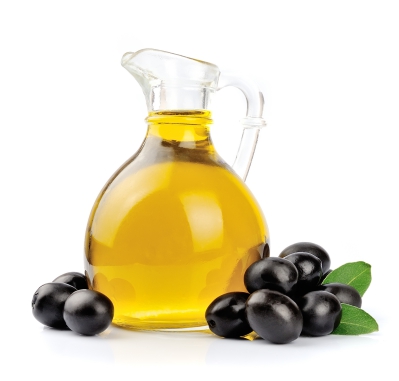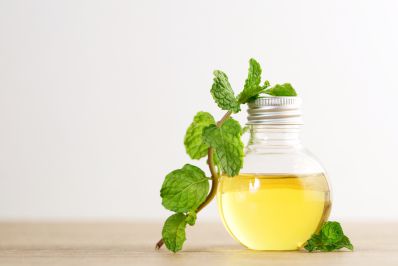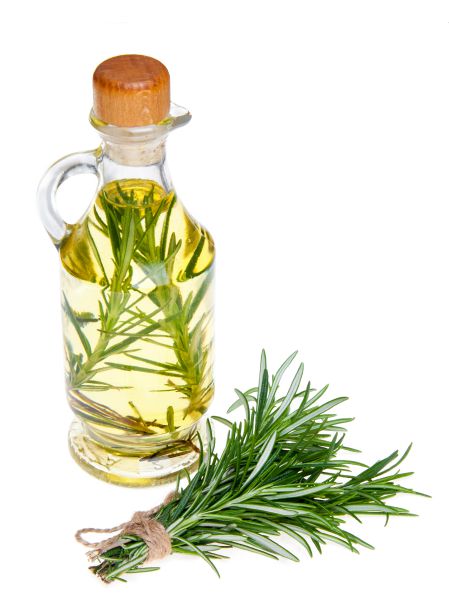Olive oil is a yellow colored liquid fat substance which is derived from olives. Olives are the fruits of olive trees of Oleaceae family, which are mainly found in Mediterranean basin. Basically, olive oil is used as cooking oil, but it also has its application on cosmetics, soap and in medicine fields. It is considered as one of the richest sources of monounsaturated fatty acids (MUFA) which has a great significance on cardiac health. Several epidemiological studies have shown that Mediterranean diet has a cardio protective property which is related with reducing the events of cardio vascular diseases and being a significant part of Mediterranean diet, olive oil plays an important role in protecting the entire cardiac system (Nocella et al., 2018). It is beneficial to consume olive oil as it has profound health benefits and mainly associated with inhibiting metabolic syndromes and non-communicable diseases.
What is extra virgin olive oil?
Extra virgin olive oil is unrefined olive oil which is considered as the highest quality olive oil and has potential effects on health. Basically, the unrefined olive oil is untreated oil and possesses true aroma and taste of the oil. It is comparatively better than other types of commercially available olive oil, as it contains more natural vitamins, minerals, antioxidant and anti-inflammatory factors within it. The most important feature of extra virgin olive oil is focused on its oleic acid content. The most important cooking advantages of extra virgin olive oil is that it has very low smoking point that means it can be burnt in a very low temperature hence helps to reduce the expense of cooking.

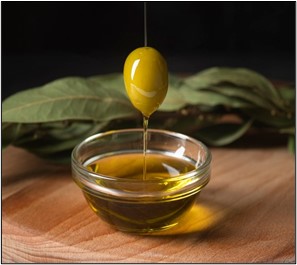
Nutritional overview of olive oil
- Olive oil contains mainly saturated fatty acids (SFA), monounsaturated fatty acids (MUFA) and polyunsaturated fatty acids (PUFA). It is estimated that 100g of olive oil contains 14g of SFA, 73g of MUFA and 11g of PUFA
- The unsaturated fatty acid content of olive oil is greater than its saturated fatty acid content which makes it healthier and of good quality
- It contains some important micronutrients which include sodium, potassium and iron
- It also contains the fat-soluble vitamins especially Vitamin E and Vitamin K
Synthesis of olive oil
- At first the olives are collected from tree and cleaned properly followed by removing steam, twig, leaf and other debris
- Then the olives are crushed well and prepare a paste. This helps to release the oil from the vacuoles of olives
- The paste is then mixed properly and kept for 20 to 45 minutes
- After that, the paste is subjected to centrifugation where the oil is separated. Basically, two phase or three phase centrifugations are commonly used for this purpose. Two phase centrifugation separates only oil and wet paste separately. Whereas three phase centrifugation separates oil, water and solid separately
- Then the separated oil is collected in a barrel and this is considered as the net yield

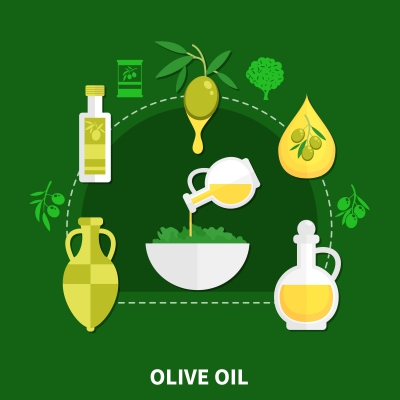
Health benefits of olive oil
Role on cardiovascular system
- The MUFA content of olive oil mainly oleic acid is the principle cardio protective factor which helps to reduce the concentration of LDL in body and reduces the risk of developing cardiovascular diseases
- It helps to increase HDL level which helps to absorb cholesterol and transport it to liver results in the reduction of free cholesterol concentration within blood. It helps to reduce the incidence of fat deposition within blood vessels, inhibits plaque formation hence reduces the risk of developing arthrosclerosis and coronary artery diseases
- It also helps to prevent hypertension
Role on hepatic health
- MUFA contents and polyphenol contents of olive oil are responsible for promoting liver health
- They are associated with repairing hepatic cell damage caused by inflammation or oxidative stress
- They help to enhance the hepatic functions as well
Role on preventing metabolic syndrome
- Metabolic syndrome is characterized by a group of adverse health conditions which are associated with increasing the risk of developing diabetes, obesity, cardiovascular diseases, hypertension and related with increasing cholesterol level
- Metabolic syndrome is chiefly responsible for strokes and heart attacks
- Olive oil helps to reduce the susceptibility of developing metabolic syndromes and it has found that people consuming olive oil has comparatively lesser risk of heart attacks than others
- The MUFA and phenolic components of olive oil help to increase the metabolic rate of the body leading to reduce obesity
- It also helps in lipolysis (breaking down of fat molecules) that helps to prevent unnecessary fat deposition within body and blood vessels hence helps to decrease abdominal fat content, waist hip ratio and the prevalence of cardiac diseases
- It increases the functionality of insulin and thus helps to prevent diabetes mellitus. Basically, fat acts as a barrier for insulin which prevents insulin to reach to its target organ and hence makes it unable to perform its action leads to developing diabetes mellitus. As olive oil helps to reduce the fat percentage of body hence it helps to enhance insulin functionality leads to reduction in blood sugar level

Role on preventing cancer
- Olive oil plays an imperative role in preventing cancer due to its antioxidant property
- Vitamin E, Vitamin K and phenolic compounds of olive oil act as active antioxidant that helps to reduce free radical concentration and protect the body from oxidative damages
Anti-inflammatory property
 Natural phenolic compound present in olive oil acts as anti-inflammatory factor and helps to reduce inflammation
Natural phenolic compound present in olive oil acts as anti-inflammatory factor and helps to reduce inflammation- It has seen that it mainly helps to reduce the joint inflammation and inflammation that developed in GI tract
- Joint inflammation is termed as arthritis and being an anti-inflammatory agent olive oil plays an important role in its prevention
- Whereas inflammation in GI tract basically known as inflammatory bowel disease (IBD) which is characterized by ulcerative colitis and crohn’s disease. The main phenylethanoid component of olive oil named oleocanthal helps to prevent this type of inflammation
Role on Alzheimer’s disease
- Alzheimer’s disease is a very common type of neurodegenerative disease caused by plaque formation within brain cell
- Olive oil helps to prevent this disorder by removing the plaque from cell and helps to protect blood vessels of brain
- Oleocanthal content (phenolic compound of unrefined olive oil) of olive oil is the main substance of reducing the disease as it is associated with slowing down the progression of Alzheimer’s disease
- It also helps in protecting the nervous system and helps to prevent anxiety and depression
General consideration of using olive oil
- It is better to consume 1 to 1.5 tablespoon of olive oil daily to fulfill its requirements
- Consumption of Mediterranean diet is associated with increasing life expectancy especially reducing cardiac related mortality rate. Olive oil is the main fat source of Mediterranean diet, so consumption of such diet helps to reduce some adverse cardiac events like strokes, heart attacks
- An individual should consume fat daily for several biological functions, but it is better to consume unsaturated fat (MUFA or PUFA) than consuming saturated fat or trans-fat, hence using of olive oil is a better option
- Unrefined olive oil is healthier than refined one, so it is better to use extra virgin olive oil

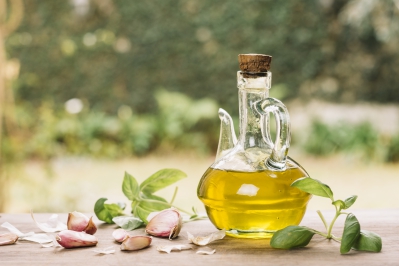
Source:
Estruch, R., Ros, E., Salas-Salvadó, J., Covas, M.I., Corella, D., Arós, F., Gómez-Gracia, E., Ruiz-Gutiérrez, V., Fiol, M., Lapetra, J. and Lamuela-Raventos, R.M., 2018. Primary prevention of cardiovascular disease with a Mediterranean diet supplemented with extra-virgin olive oil or nuts. New England journal of medicine, 378(25), p.e34.
Garcia-Martinez, O., Ruiz, C., Gutierrez-Ibanez, A., Illescas-Montes, R. and Melguizo-Rodriguez, L., 2018. Benefits of olive oil phenolic compounds in disease prevention. Endocrine, Metabolic & Immune Disorders-Drug Targets (Formerly Current Drug Targets-Immune, Endocrine & Metabolic Disorders), 18(4), pp.333-340.
Gorzynik-Debicka, M., Przychodzen, P., Cappello, F., Kuban-Jankowska, A., Marino Gammazza, A., Knap, N., Wozniak, M. and Gorska-Ponikowska, M., 2018. Potential health benefits of olive oil and plant polyphenols. International journal of molecular sciences, 19(3), p.686.
Martinez-Gonzalez, M.A. and Martin-Calvo, N., 2016. Mediterranean diet and life expectancy; beyond olive oil, fruits and vegetables. Current opinion in clinical nutrition and metabolic care, 19(6), p.401.
Montserrat-de la Paz, S., Bermudez, B., Cardelo, M.P., Lopez, S., Abia, R. and Muriana, F.J., 2016. Olive oil and postprandial hyperlipidemia: Implications for atherosclerosis and metabolic syndrome. Food & function, 7(12), pp.4734-4744.
Nocella, C., Cammisotto, V., Fianchini, L., D'Amico, A., Novo, M., Castellani, V., Stefanini, L., Violi, F. and Carnevale, R., 2018. Extra virgin olive oil and cardiovascular diseases: Benefits for human health. Endocrine, Metabolic & Immune Disorders-Drug Targets (Formerly Current Drug Targets-Immune, Endocrine & Metabolic Disorders), 18(1), pp.4-13.
Saibandith, B., Spencer, J.P., Rowland, I.R. and Commane, D.M., 2017. Olive polyphenols and the metabolic syndrome. Molecules, 22(7), p.1082.
Silenzi, A., Giovannini, C., Scazzocchio, B., Varì, R., D’Archivio, M., Santangelo, C. and Masella, R., 2020. Extra virgin olive oil polyphenols: biological properties and antioxidant activity. In Pathology (pp. 225-233). Academic Press.
Visioli, F., Franco, M., Toledo, E., Luchsinger, J., Willett, W.C., Hu, F.B. and Martinez-Gonzalez, M.A., 2018. Olive oil and prevention of chronic diseases: Summary of an International conference. Nutrition, Metabolism and Cardiovascular Diseases, 28(7), pp.649-656.
